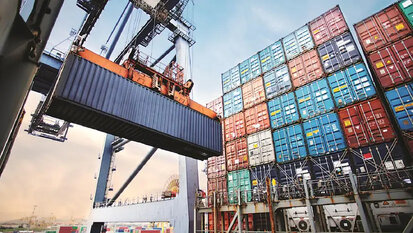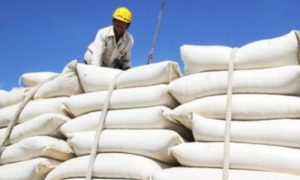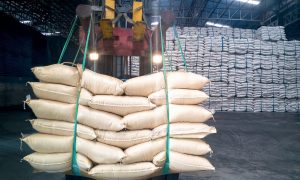ECC uncovers violations in export: Islamabad

The Economic Coordination Committee (ECC) exposed irregularities in sugar exports, accusing the Ministry of Industries of violating cabinet conditions to prevent price hikes. Despite price surges, the ministry pushed for relaxed export rules. The ECC approved a 15-day extension for exports but urged a compliance report and revision of oversight terms to address concerns of favouritism towards sugar millers.
ISLAMABAD: The Economic Coordination Committee (ECC) has exposed irregularities in sugar exports, revealing that the Ministry of Industries (MoI&P) violated conditions set by the cabinet to prevent an increase in local sugar prices. This development has sparked concerns about favouritism towards sugar millers.
The cabinet had set clear guidelines for the export of sugar, including the stipulation that retail prices should not rise due to exports. However, the sugar price in the local market soared beyond the benchmark price. Sources revealed to The Express Tribune that a recent meeting of the ECC highlighted the ministry’s non-compliance with the Monitoring Committee’s directive to halt sugar exports when prices exceeded the approved limit.
Despite the cabinet’s decision to reject an additional 100,000 metric tonnes of sugar exports and a directive to revisit the matter before the next crushing season, the Ministry of Industries submitted a new proposal. This summary sought relaxation of export conditions for the already approved 150,000 metric tonnes.
During discussions, the ECC recalled its earlier decision from June 2024 to allow the export of 150,000 metric tonnes of sugar, ratified by the cabinet with specific conditions. A Monitoring Committee was formed to oversee sugar prices during the export. However, the Monitoring Committee, led by the Minister for Petroleum, raised concerns that these conditions were not followed.
The Ministry of Industries defended its actions, noting that $62 million had already been received from importers, and that sugar prices had shown a downward trend. The ministry also cited differences of opinion within the Monitoring Committee over whether exports should be stopped. It was further informed that the Industries and Production Division intended to report the matter to the prime minister through another summary. Additionally, cancelling export agreements at this stage, they argued, could damage Pakistan’s credibility and economic interests. It was reiterated that due to market forces, the retail price of sugar had shown a downward trend, falling below the benchmark set by the ECC, and this decline was still ongoing. Additionally, the ex-mill price had dropped below the fixed threshold. It was emphasised that, regardless of any decisions made, the interests of the growers should not be compromised.
The Industries and Production Division informed that the Cabinet had approved the export of 150,000 metric tonnes of sugar in its decision on June 13, 2024. This decision was later ratified by the federal cabinet on June 25, 2024, with the stipulation that exporters must ship the consignment within 45 days of quota allocation. Consequently, the respective Cane Commissioners were instructed to allocate the export quotas. According to a report from the State Bank of Pakistan, 67,522 metric tonnes of sugar had been exported by August 16, 2024.
The ECC was informed that retail sugar prices had exceeded the benchmark of Rs145.15/kg set by the cabinet, rising to Rs147.7/kg in July 2024. However, prices had since dropped below the benchmark to Rs143.79/kg by August 2024. Furthermore, ex-mill prices were consistently below the Rs140/kg threshold. According to the Cane Commissioner of Punjab, two sugar mills had not fully used their export proceeds to pay growers.
During a meeting of the SAB, the Pakistan Sugar Mills Association (PSMA) requested an extension of the 45-day export period to 60 days, citing procedural delays.
Additionally, PSMA highlighted that litigation issues prevented the utilisation of the export quota for Sindh, while Khyber-Pakhtunkhwa (K-P)’s Cane Commissioner had not allocated the quota. A request was also received from the National Logistics Cell (NLC), whose vehicles were delayed at the Torkham Border due to recent cross-border tensions. These factors delayed sugar exports and impacted compliance with the allocated timeframe.
Based on these circumstances, the Ministry of Industries proposed a 15-day extension for Punjab’s unutilised export quota, effective upon cabinet ratification. Other provinces would be granted extensions based on their respective Cane Commissioners’ allocation dates.
The ECC approved the proposed extension for the 150,000 metric tonnes of sugar exports, recognising that halting exports after receiving advance payments could damage Pakistan’s reputation. However, the ECC also recommended that the Ministry of Industries present a report to the cabinet outlining compliance with the Monitoring Committee’s conditions.
This move comes amid accusations that the Ministry of Industries did not fully adhere to the Monitoring Committee’s recommendations, leading to significant concerns about transparency and accountability in sugar export policies. The ECC urged a revision of the Monitoring Committee’s Terms of Reference to prevent further lapses in oversight.
The Industries and Production Division is set to make a presentation to the federal cabinet, highlighting compliance levels with the Monitoring Committee’s directions for exporting the 150,000 metric tonnes of sugar.
To read more about the news about the Sugar Industry continue reading Agriinsite.com
Source Link: https://tribune.com.pk/story/2495117/ecc-uncovers-violations-in-export

















